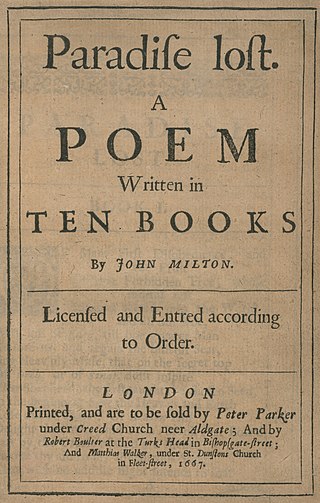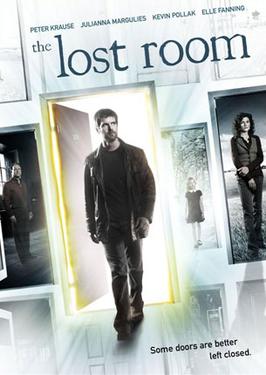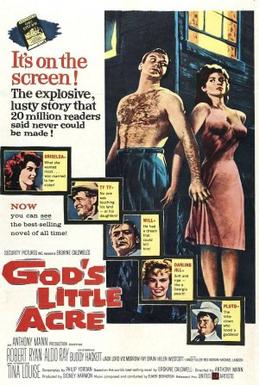Agnosticism is the view or belief that the existence of God, the divine, or the supernatural is either unknowable in principle or currently unknown in fact. It can also mean an apathy towards such religious belief and refer to personal limitations rather than a worldview. Another definition is the view that "human reason is incapable of providing sufficient rational grounds to justify either the belief that God exists or the belief that God does not exist."

Omniscience is the capacity to know everything. In Hinduism, Sikhism and the Abrahamic religions, this is an attribute of God. In Jainism, omniscience is an attribute that any individual can eventually attain. In Buddhism, there are differing beliefs about omniscience among different schools.
The Book of Jacob: The Brother of Nephi, usually referred to as the Book of Jacob, is the third of fifteen books that make up the Book of Mormon, a sacred text within the Latter Day Saint movement.

Paradise Lost is an epic poem in blank verse by the 17th-century English poet John Milton (1608–1674). The first version, published in 1667, consists of ten books with over ten thousand lines of verse. A second edition followed in 1674, arranged into twelve books with minor revisions throughout. It is considered to be Milton's masterpiece, and it helped solidify his reputation as one of the greatest English poets of all time. The poem concerns the biblical story of the fall of man: the temptation of Adam and Eve by the fallen angel Satan and their expulsion from the Garden of Eden.

An āyah is a "verse" in the Quran, one of the statements of varying length that make up the chapters (surah) of the Quran and are marked by a number. In the Quranic context the word means "evidence", "sign" or "miracle", and in Islam may refer to things other than Quranic verses, such as religious obligations or cosmic phenomena. In the Quran it is referred to in several verses such as:
تِلْكَ آيَاتُ ٱللَّٰهِ نَتْلُوهَا عَلَيْكَ بِٱلْحَقِّۖ فَبِأَيِّ حَدِيثٍۭ بَعْدَ ٱللَّٰهِ وَآيَاتِهِۦ يُؤْمِنُونَ
"These are the āyahs of Allah that We recite for you in truth. So what discourse will they believe after God and His āyahs?"
The argument from free will, also called the paradox of free will or theological fatalism, contends that omniscience and free will are incompatible and that any conception of God that incorporates both properties is therefore inconceivable. See the various controversies over claims of God's omniscience, in particular the critical notion of foreknowledge. These arguments are deeply concerned with the implications of predestination.

The Serenity Prayer is an invocation by the petitioner for wisdom to understand the difference between circumstances ("things") that can and cannot be changed, asking courage to take action in the case of the former, and serenity to accept in the case of the latter.
"Know thyself" is a philosophical maxim which was inscribed upon the Temple of Apollo in the ancient Greek precinct of Delphi. The best-known of the Delphic maxims, it has been quoted and analyzed by numerous authors throughout history, and has been applied in many ways. Although traditionally attributed to the Seven Sages of Greece, or to the god Apollo himself, the inscription likely had its origin in a popular proverb.
Donald "Don" Miller is an American author, public speaker, and business owner. He is the CEO of StoryBrand, a marketing company. He is also an author of personal essays and reflections about faith, God, and self-discovery. His first New York Times bestselling book was Blue Like Jazz and his latest book is called Hero on a Mission.

The Gay Science is a book by Friedrich Nietzsche published in 1882, and followed by a second edition in 1887 after the completion of Thus Spoke Zarathustra and Beyond Good and Evil. This substantial expansion includes the addition of a fifth book to the existing four books of The Gay Science, as well as an appendix of songs. It was described by Nietzsche as "the most personal of all my books", and contains more poems than any of his other works.

Mark 1 is the first chapter of the Gospel of Mark in the New Testament of the Christian Bible. It recounts the proclamation of John the Baptist, the baptism of Jesus Christ, his temptations and the beginning of his ministry in Galilee.

The Parable of the Lost Sheep is one of the parables of Jesus. It appears in the Gospels of Matthew and Luke. It is about a man who leaves his flock of ninety-nine sheep in order to find the one which is lost. In Luke 15, it is the first member of a trilogy about redemption that Jesus addresses to the Pharisees and religious leaders after they accuse him of welcoming and eating with "sinners."

The Lost Room is a 2006 supernatural television miniseries that aired on the Syfy Channel in the United States. The series revolves around the titular room and some of the everyday items from that room which possess unusual powers. The show's protagonist, Joe Miller, is searching for these objects to rescue his daughter, Anna, who has disappeared inside the Room. Once a typical room at a 1960s motel along U.S. Route 66, the Lost Room has existed outside of normal time and space since 1961, when what is referred to only as "the Event" took place.
Qadar is the concept of divine destiny in Islam. As God is all-knowing and all-powerful, everything that has happened and will happen in the universe is already known. At the same time, human beings are responsible for their actions, and will be rewarded or punished accordingly on Judgement Day.
The Doctrine and Discipline of Divorce: Restor'd to the Good of Both Sexes, From the Bondage of Canon Law was published by John Milton on 1 August 1643. An expanded second edition was published on 2 February 1644. The editions were published anonymously, and his name was not associated with the text until they were denounced before Parliament in August 1644. Milton's basic scriptural argument is that Jesus did not abrogate the Mosaic permission for divorce found in Deuteronomy 24:1 because in Matthew 19 he was just addressing a specific audience of Pharisees.

"I Don't Know What It Is" is a single by Canadian-American singer-songwriter Rufus Wainwright, released in a slim-line jewel case format on July 26, 2004. It is from his third studio album Want One (2003). In addition to the UK and Japanese versions of Want One, the song also appears on the bonus DVD that accompanies Want Two, All I Want (DVD), and Want, a repackaged UK double album that contains Want One and Want Two.

God's Little Acre is a 1958 American comedy-drama film of Erskine Caldwell's 1933 novel of the same name. It was directed by Anthony Mann and shot in black and white by cinematographer Ernest Haller. Although the film was not released until August 1958, its production schedule was indicated as September 11 to late October 1957.
Moralistic therapeutic deism (MTD) is a term that was first introduced in the 2005 book Soul Searching: The Religious and Spiritual Lives of American Teenagers by the sociologist Christian Smith with Melinda Lundquist Denton. The term is used to describe what they consider to be the common beliefs among U.S. youths. The book is the result of the research project the National Study of Youth and Religion.

Seeking Major Tom is the fourth studio album by William Shatner. It was released October 11, 2011 in the US by Cleopatra Records.
Jim Holt is an American journalist, popular-science author, and essayist. He has contributed to The New York Times, The New York Times Magazine, The New York Review of Books, The New Yorker, The American Scholar, and Slate. In 1997 he was editor of The New Leader, a political magazine. His book Why Does the World Exist? was a 2013 New York Times bestseller.











